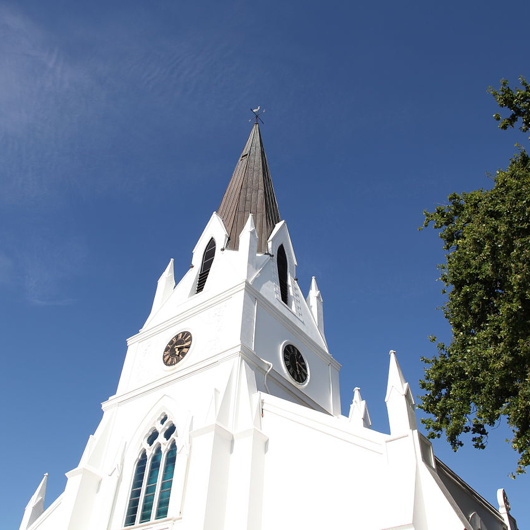
About Andrew Cusack
 Writer, web designer, etc.; born in New York; educated in Argentina, Scotland, and South Africa; now based in London.
Writer, web designer, etc.; born in New York; educated in Argentina, Scotland, and South Africa; now based in London. read more
News
Blogs
Reviews & Periodicals
Arts & Design
World
France
Mitteleuropa
Knickerbockers
Argentina
The Levant
Africa
Cape of Good Hope
Netherlands
Scandinavia
Québec
India
Muscovy
Germany
Academica
Sunday in Stellenbosch
In recent rambles I came upon an old article from the Spectator in which the late and much-praised Richard West reported from Stellenbosch — “this old and incomparably beautiful town in a valley of vineyards” — on the Sunday after the Dutch Reformed Church renounced apartheid in 1986.
“The students here seem to be confident, cheerful, enthusiastic and full of fun,” West wrote. “Half of them seem to be in love, holding hands and gazing adoringly into each other’s eyes.”
As I walked over the university lawn, I turned at the hoot of a horn, and saw that it came from a motor-bike cop, who wanted to get the attention of and wave to a friend. Small children were paddling in the brook that runs by an avenue of old oaks. Bigger children, spotlessly dressed, went smiling off to their Sunday school, while their elders went to the mother church, where there has been a congregation since 1684. The present building, begun in 1715 and renovated during the 19th century, now has a peculiar boomerang shape so that if you are sitting near one of the ends, you cannot see or hear what is going on at the other side. The church cannot compete in appearance with some of the houses of Stellenbosch, which justify Ruskin’s remark that ‘the only contribution to domestic architecture for centuries was made by the Dutch at the Cape’.
The congregation who filled the church was impeccably dressed, the men all wearing coats and ties, though most women were hatless with summer dresses of normal length at the arms and legs, instead of the 17th-century garb one tends to associate with Calvinism. The congregation has little to do except sing the metrical psalms. The prayers are said by the minister, who devotes much if not most of the hour-long service to giving his sermon. …
Stellenbosch University, which was where apartheid began, is now working to dismantle the system. Whereas the English universities are stuck in the stale polemics of 20 years ago, the Afrikaners are bubbling with radical new ideas. Whereas foreigners once read Afrikaans papers ‘to learn what they were thinking’, it is now essential to read them to find any thinking at all. The two best English newspapers are edited by Afrikaners. The Afrikaners still believe in the future. …
Mr West died in 2015 but it would be fascinating to see what he would make of the Eikestad these days.
Search
Instagram: @andcusack
Click here for my Instagram photos.Most Recent Posts
- Sag Harbor Cinema March 26, 2025
- Teutonic Takeover March 10, 2025
- Katalin Bánffy-Jelen, R.I.P. March 3, 2025
- Substack Cusackiensis March 3, 2025
- In the Courts of the Lord February 13, 2025
Most Recent Comments
Book Wishlist
Monthly Archives
Categories



